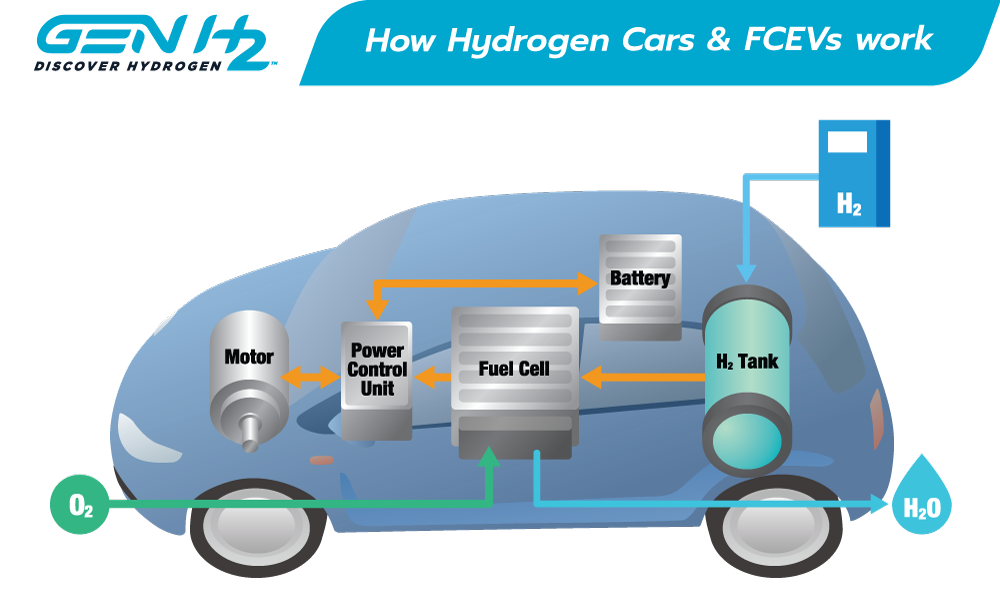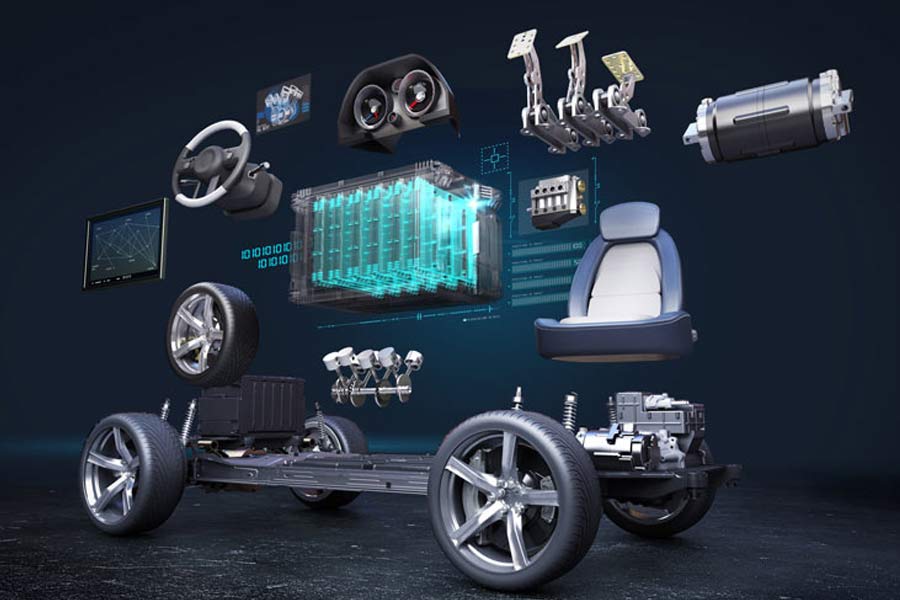Hydrogen Cars
By: GenH2 Staff
Read Time: 3 minutes
10 Things You Should Know About Hydrogen Fuel-Cell Automobiles
In the advancements of electric vehicles, the use of hydrogen as the power for the fuel cells is becoming an excellent alternative to electric vehicles (EVs), when it comes to zero emissions mobility. In fact, a few major car manufacturers have hydrogen-fueled cars that can currently be leased or purchased. However, as a general consumer, is one aware of this choice in EVs – and how much do we really know about hydrogen-powered vehicles? Here are 10 things everyone should know and consider about a hydrogen FCEV.

10. Powered by hydrogen
Hydrogen FCEVs are electric vehicles, and are very similar to standard EVs. They store energy in batteries and use that energy to run electric motors – like an EV. But instead of charging the batteries via cables and charging stations, hydrogen FCEVs fill tanks with highly pressurized hydrogen. The most important thing to note is that the only by-products of hydrogen cars are electricity and pure water.
9. Hydrogen is safe
The technology of the tanks that store the hydrogen in hydrogen cars meet extreme safety standards and are as secure as the tanks that hold flammable gasoline. Safety concerns with the hydrogen tanks leaking are expected to be much less than the concerns currently being addressed with electric vehicles. The safety requirements are continually being addressed and met.
8. Hydrogen is becoming more available
The infrastructure needed for complete deployment of hydrogen FCEVs continues to be one of the challenges. However, they are being addressed by companies like GenH2, who are working on liquid hydrogen infrastructure solutions for a U.S. and global hydrogen economy. As the hydrogen infrastructure is more realized around the U.S. and the world, hydrogen will become more accessible to users and consumers.
7. They are considered more sustainable than EVs
Hydrogen FCEVs are considered to be lighter than EVs, have more range and produce zero greenhouse gas emissions. Also, they can be considered perhaps to be more sustainable, in not having to deal long term with the disposal of lithium batteries.
6. They are also Electric Cars
Many times, in general conversation about hydrogen cars, people are surprised to learn that hydrogen cars are also electric cars. They use the same electric motors as EVs; they are just powered differently.
5. Better range capabilities
Both hydrogen cars and EVs use electric motors to make them go, but the energy is stored in two different ways. For EV’s the energy source is lithium-ion type batteries. But for hydrogen cars or vehicles, the energy source is hydrogen itself onboard. This allows for the flexibility of not having to stop and charge the battery, allowing for better or extended range capabilities.
4. Quicker to refill storage tank
While EVs must be plugged in from anywhere between 4-8 hours, hydrogen cars can be filled up in a matter of minutes.
3. The cost is decreasing
Most consumers are of the opinion that hydrogen is too expensive to meet current large scale transportation needs. However, with initiatives like the DOE Hydrogen Shot and $1 per kilogram in 1 decade (‘1 1 1’), and with efforts being initiated by companies like GenH2 – who are working on the building of liquid hydrogen infrastructures – supply chain will be increased. As there is more demand and scale-up, cost will be driven down.
Even though there are only a few named hydrogen cars currently, once the infrastructure is deployed and more available to the consumer, the FCEVs’ increase in market share should rise up and become more available as a transportation choice. Most car manufacturers have already been working on developing their own hydrogen cars and should be positioned well for the market, once the demand is there.
1. The Hydrogen age is now
Hydrogen economy is the future, but it is also the present. Planes, trains, ships, trucks and automobile manufacturers have or are currently working on hydrogen-powered engineered transportation. As the demand for more sustainable alternatives grows, hydrogen as an energy and electricity source should quickly become the solution.
 Copyright All Rights Reserved GenH2
Copyright All Rights Reserved GenH2

 Copyright All Rights Reserved GenH2
Copyright All Rights Reserved GenH2